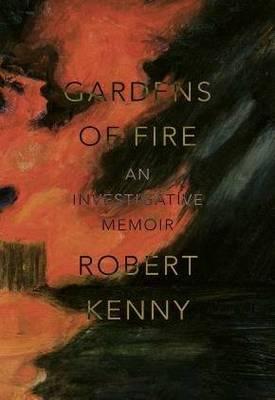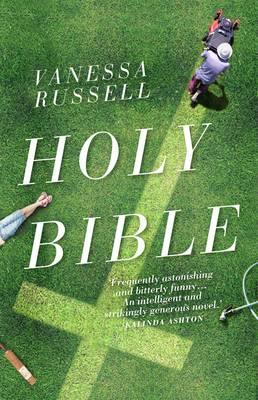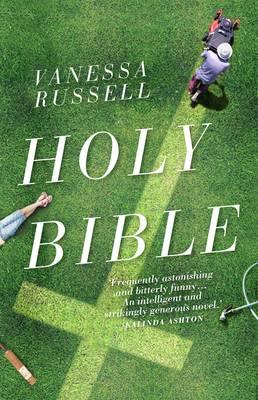The Small Press Network (SPN) has announced the shortlist for this year’s Most Underrated Book Award (MUBA).
The shortlisted titles are:
- Gardens of Fire: An investigative memoir (Robert Kenny, UWA Publishing) Memoir by writer, historian Robert Kenny about his experiences during the Black Saturday Victorian bushfires of 2009.
- A Wrong Turn at The Office of Unmade Lists (Jane Rawson, Transit Lounge)
- Holy Bible (Vanessa Russell, Sleepers Publishing).
The judges of this year’s prize include Books Plus bookseller Jenny Barry, Kinokuniya book buyer Helene Byfield and Fictioners.net blogger Nick Hudson.
The MUBA aims to “shine a light on some of the outstanding titles that are released by small and independent Australian publishers that, for whatever reason, did not receive their fair dues when first released”.
Martin Shaw, head book buyer at Readings Books in Melbourne and Small Press Network Board member said: “We hear a lot about the top end of town in the book industry: your Penguin Random Houses or Hachettes invariably inhabit a good proportion of our bestseller and awards lists. But equally fine work is also being done at a much smaller scale, often by publishing houses with as little as 1 or 2 staff, and with none of the sales & marketing clout of the majors. It’s to acknowledge their work that the MUBA prize came into being.
This year we were presented with a wide range of entries across all genres. The judges are charged with making a judgement on not just the literary quality of the long-listed works, but also that the publisher had gone to every effort in terms of editorial and production expertise to bring to market the best book they possibly could. And, within their means, to disseminate it in an engaging way through as many channels as possible.
The shortlist for this year’s MUBA 2014 exemplifies this creative spirit. It is gladdening to be able to say that the small press scene is thriving in this country, and deserves every support and recognition.
The winner of the MUBA will be announced on 13 November at a presentation as part of the SPN Independent Publishing Conference in Sydney. Last year, Merlinda Bobis won the award for Fish-Hair Woman (Spinifex Press).
Reviews Roundup

A Wrong Turn at the Office of Unmade Lists by Jane Rawson
From the blurb: “It is 1997 in San Francisco and Simon and Sarah have been sent on a quest to see America: they must stand at least once in every 25-foot square of the country. Decades later, in an Australian city that has fallen on hard times, Caddy is camped by the Maribyrnong River, living on small change from odd jobs, ersatz vodka and memories. She’s sick of being hot, dirty, broke and alone. Caddy’s future changes shape when her friend, Ray, stumbles across some well-worn maps, including one of San Francisco, and their lives connect with those of teenagers Simon and Sarah in ways that are unexpected and profound. A meditation on happiness – where and in what place and with who we can find our centre, a perceptive vision of where our world is headed, and a testament to the power of memory and imagination.”
Marisa Wikramanayake reviewed A Wrong Turn at the Office of Unmade Lists saying: This is a book about “What if” moments and “Definitely” consequences. What if you could hop, skip and jump across the creases? And what if your world ended when the map you held did? And what if you could go back to a particular time, if the space around you had altered enough to change it? And can you not see that A will definitely lead to B?
“Reading A Wrong Turn At The Office of Unmade Lists is a blinkers on sideways rollercoaster ride – you can see the ups and downs but you can’t see the changes in direction and they surprise and delight you. Jane Rawson has a knack for describing settings and place and for conveying meaning through perfectly picked, hammered and nailed down dialogue. And yes there are jokes. There is a thread of snarkiness all throughout this book. And underneath all the surprises, the snark, the ‘I have no idea where I am going with this’ sense of surrealistic madness, it’s about how we choose to live our lives and what creates the most meaning for ourselves and how we come to understand that about ourselves.”
You can read Marisa’s interview with Jane Rawson here.
David Golding who says he decided to read the book because he was after a sci-fi read, rated it 5 stars saying that “Rawson has a light touch, fluid prose, and charming characters to carry you through whatever strangeness you perceive.” Golding says that the author “keeps the material honest (and honestly material), letting the reader draw their own conclusions. I was put in mind of — its affinities with and oppositions to — a number of other novels (and The Matrix), but probably what it most felt like was a more genial yet more doomed version of M. John Harrison’s Nova Swing.”
Holy Bible by Vanessa Russell
From the blurb: “Meet the Bloom family — a large, raucous but quietly damaged family growing up in a small Christian sect in Ballarat. To them the Bible provides everything that any of them need to know about life, the future and Jesus Christ’s imminent return. They are a small but close-knit community where you are forbidden from straying, or risk being ostracised.
Funny, touching and heart-wrenching all at once, Holy Bible explores what it would be like to grow up in a highly controlled environment. What happens when we confront the fear that has held us in that space for so long? What happens to the family? And is it possible to rewrite the book by which we live?”
In her review of Holy Bible, Jane Rawson says that she likes “period pieces set in the recent past” particularly if set outside a capital city as this one is (Ballarat). Rawson writes: “Vanessa Russell did a brilliant job of weaving the textures — clothes, food, TV, current affairs — of 1991 into her storyline without going over the top. And the dialogue and descriptions are great: utterly small-town Australia, authentic and easy to read.”
Rawson found that there were two conflicting tones in the novel’s first and second halves as she explains here: “The first part of the book is light, a comic story of a young woman struggling to create a life which embraces both her religious upbringing and family, and her passionate desire to be a nurse and help people “on the outside” (forbidden by her religion). The sect she’s part of is portrayed as bumbling, out-of-touch, on the brink of dissolving, but overall quite likeable. The second part strips away the goofy charm and focuses on the young woman’s mother and brother, and the traumas that eat away at them and may destroy them, all brought on by membership of this sect.” Rawson preferred the second half’s tone and her favourite thing about the book was its attitude towards “fringe religion”. “I was really glad Russell didn’t tear apart or belittle this sect and their beliefs. Her approach is critical but always tender and understanding. All the characters are human, their motivations believable and their flaws are at human scale,” writes Rawson.
We’d love to read more of your reviews of these two shortlisted novels so please send them in!
All AWW Challenge reviews are accessible here.
About Me
I’m a freelance book reviewer, journalist, editor, and librarian. I blog over at Wordsville and can be found on Twitter @PaulaGrunseit









Trackbacks/Pingbacks